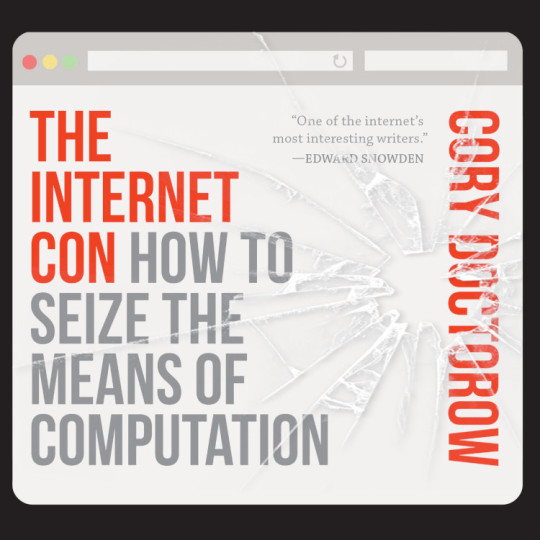#not tor
Text
Chants of Sennarr is taking over my LIFE
When I was falling asleep last night I was really busily constructing a hypothetical scenario in which I as the Traveler was talking to a Bard and a Warrior and trying to get them to learn each others language. And I was talking in Warrior language and Bard language both to bridge the gap between them, but mostly warrior because I'm more familiar with it.
In the process I realized warrior doesn't have a glyph for "you" so I combined the glyphs for "impure" and "scientist" becaue those are the groups I identify with most, and made that my name. (I consider traveler-me to be a devotee because that's where I woke up and it's the language I know the best, and also a scientist because the scientists are helpful and friendly and did most of the work in opening the door to the next level.) My name in Bard was the glyphs for "monster" and "beauty", because they don't even have a word for the impure, so monster works and I lean towards being not human anyways, and then beauty because I wanted to combine a good thing with the bad thing and the Bards would find the contradiction appealing. Also in recognition of the fact that the Traveler never talks, I was using my notebook to write things down, and also an interface similar to the conversation doors where I could select glyphs and they would appear in a spot on the wall.
The way I was teaching the bard and the warriors each others language was I would write in my notebook "warrior '[warrior glyph]'" and underneath it "warrior '[corresponding chosen one glyph]' and then I would jab more finger at the page until warrior said it. In bard language I would write "'[bard glyph]' you bard talk" and "[warrior glyph]' you warrior talk". I'll be real though, I don't think they learned too many words. I got distracted by talking to the warrior because Bard language still is difficult for me to plan out and speak. I did have plans of writing out a map of the directly translatable glyphs though! Even if Warrior doesn't have me, you, be, or compass, and even if Bard doesn't have instrument, crate, or big/small (I'd translate instrument as "music weapon" btw), about half of their languages directly correspond to each other. I could just copy over my written down glyphs and draw lines between the ones with similar meanings.
#all me#chants of sennarr#cos#not tor#also while in the half-dream I realized that there is no way to express “alone” “good” “bad”or “happy” in either language#and I really struggled with expressing that I was glad I wouldn't be alone anymore because other people could learn the languages#and talk to each other#and it wouldn't be just me skulking through the dark anymore#also nobody has Any words for time what's up with that??#not even past present future? Come On#how are we supposed to make plans without that :/#to summarize: if anybody is interested in chatting with me via all the different languages or if you have glyph fonts hmu#oh i guess in Warrior you could translate “bard talk” as “chosen ones music” not perfect bc “talk” is a verb while “music” is a noun#but still gets the idea across I think#chants of sennarr spoilers#cos spoilers#oh btw guys I haven't finished the game yet so no spoilers#i've met all the people and im going through the tower doing [redacted] so im pretty late game but haven't finished it
1 note
·
View note
Text


House M.D. | 6x19 The Choice
10K notes
·
View notes
Text











Celebrate Pride With These 10 Incredible LGBTQ+ Characters
22K notes
·
View notes
Text
TOR WRAPPED 2023
Books for every Spotify Wrapped listener class!

VAMPIRE
Masters of Death by Olivie Blake
Starling House by Alix E. Harrow
Mordew by Alex Pheby

HYPNOTIST
The Library of the Dead by T. L. Huchu
Daughter of Redwinter by Ed McDonald
Spring’s Arcana by Lilith Saintcrow

ALCHEMIST
The Bone Orchard by Sara A. Mueller
The Genesis of Misery by Neon Yang
The Echo Wife by Sarah Gailey

SHAPESHIFTER
Thornhedge by T. Kingfisher
The Warden by Daniel M. Ford
Wolfsong by TJ Klune

FANATIC
Mistborn by Brandon Sanderson
Bookshops & Bonedust by Travis Baldree
The Fragile Threads of Power by V. E. Schwab

TIME TRAVELER
Kinning by Nisi Shawl
She Who Became the Sun by Shelley Parker-Chan
The Invisible Life of Addie LaRue by V. E. Schwab

MASTERMIND
The Atlas Six by Olivie Blake
Red Team Blues by Cory Doctorow
Exadelic by Jon Evans

COLLECTOR
The Wolfe at the Door by Gene Wolfe
Cassiel’s Servant by Jacqueline Carey
The Great Hunt by Robert Jordan
#spotify#spotify wrapped#tor books#the great hunt#the wolfe at the door#cassiel's servant#jacqueline carey#robert jordan#gene wolfe#exadelic#jon evans#red team blues#cory doctorow#the atlas six#olivie blake#kinning#nisi shawl#she who became the sun#shelley parker-chan#the invisible life of addie larue#v e schwab#mistborn#brandon sanderson#bookshops & bonedust#travis baldree#the fragile threads of power#thornhedge#t kingfisher#ursula vernon#wolfsong
5K notes
·
View notes
Text
evil loves to win
25K notes
·
View notes
Text

more merfolk au. Tor belongs to @littleulvar
1K notes
·
View notes
Text
ONLY ONE IS CANON. PLEASE READ THE QUESTION.
* For the purposes of this poll, both Legends and Disney qualify as canon.
** Eminent domain
Don't give away the answer before the poll ends! I'll reblog with an explanation once it's done.
"Why the big red--" I've already had five people vote in the wrong direction.
#Anakin Skywalker#obi wan kenobi#satine kryze#qui gon jinn#star wars#the clone wars#sw legends#quinlan vos#yan dooku#Xanatos du Crion#Xanatos#Pre Vizsla#Tor Vizsla#Tahl#Galidraan#Jango Fett#Stewjon#infanticide mention#dooku#New Mandalore#count dooku#phoenix polls#fanon#fanon vs canon
2K notes
·
View notes
Text

the distinction is important
#ace attorney#kristoph gavin#klavier gavin#i struggled so hard to find the right fonts. and even then i feel like i couldve done better tor klavier.#edit: pinning this because im right
559 notes
·
View notes
Text



You participate in one Fal-tor-pan and suddenly you get the "best son-in-law" mug at breakfast
#star trek#star trek tos#leonard mccoy#jim kirk#sarek#spock#bones mccoy#captain kirk#star trek iii#star trek iii: the search for spock#the search for spock#mcspirk#fal-tor-pan#seriously you carry a guy's son's katra for a few weeks and suddenly you can do no wrong#did you check the other boyfriend. you gotta check both
2K notes
·
View notes
Text
Forcing your computer to rat you out

Powerful people imprisoned by the cluelessness of their own isolation, locked up with their own motivated reasoning: “It’s impossible to get a CEO to understand something when his quarterly earnings call depends on him not understanding it.”
Take Mark Zuckerberg. Zuckerberg insists that anyone who wanted to use a pseudonym online is “two-faced,” engaged in dishonest social behavior. The Zuckerberg Doctrine claims that forcing people to use their own names is a way to ensure civility. This is an idea so radioactively wrong, it can be spotted from orbit.
From the very beginning, social scientists (both inside and outside Facebook) told Zuckerberg that he was wrong. People have lots of reasons to hide their identities online, both good and bad, but a Real Names Policy affects different people differently:
https://memex.craphound.com/2018/01/22/social-scientists-have-warned-zuck-all-along-that-the-facebook-theory-of-interaction-would-make-people-angry-and-miserable/
For marginalized and at-risk people, there are plenty of reasons to want to have more than one online identity — say, because you are a #MeToo whistleblower hoping that Harvey Weinstein won’t sic his ex-Mossad mercenaries on you:
https://www.newyorker.com/news/news-desk/harvey-weinsteins-army-of-spies
Or maybe you’re a Rohingya Muslim hoping to avoid the genocidal attentions of the troll army that used Facebook to organize — under their real, legal names — to rape and murder you and everyone you love:
https://www.amnesty.org/en/latest/news/2022/09/myanmar-facebooks-systems-promoted-violence-against-rohingya-meta-owes-reparations-new-report/
But even if no one is looking to destroy your life or kill you and your family, there are plenty of good reasons to present different facets of your identity to different people. No one talks to their lover, their boss and their toddler in exactly the same way, or reveals the same facts about their lives to those people. Maintaining different facets to your identity is normal and healthy — and the opposite, presenting the same face to everyone in your life, is a wildly terrible way to live.
None of this is controversial among social scientists, nor is it hard to grasp. But Zuckerberg stubbornly stuck to this anonymity-breeds-incivility doctrine, even as dictators used the fact that Facebook forced dissidents to use their real names to retain power through the threat (and reality) of arrest and torture:
https://pluralistic.net/2023/01/25/nationalize-moderna/#hun-sen
Why did Zuck cling to this dangerous and obvious fallacy? Because the more he could collapse your identity into one unitary whole, the better he could target you with ads. Truly, it is impossible to get a billionaire to understand something when his mega-yacht depends on his not understanding it.
This motivated reasoning ripples through all of Silicon Valley’s top brass, producing what Anil Dash calls “VC QAnon,” the collection of conspiratorial, debunked and absurd beliefs embraced by powerful people who hold the digital lives of billions of us in their quivering grasp:
https://www.anildash.com/2023/07/07/vc-qanon/
These fallacy-ridden autocrats like to disguise their demands as observations, as though wanting something to be true was the same as making it true. Think of when Eric Schmidt — then the CEO of Google — dismissed online privacy concerns, stating “If you have something that you don’t want anyone to know, maybe you shouldn’t be doing it in the first place”:
https://www.eff.org/deeplinks/2009/12/google-ceo-eric-schmidt-dismisses-privacy
Schmidt was echoing the sentiments of his old co-conspirator, Sun Microsystems CEO Scott McNealy: “You have zero privacy anyway. Get over it”:
https://www.wired.com/1999/01/sun-on-privacy-get-over-it/
Both men knew better. Schmidt, in particular, is very jealous of his own privacy. When Cnet reporters used Google to uncover and publish public (but intimate and personal) facts about Schmidt, Schmidt ordered Google PR to ignore all future requests for comment from Cnet reporters:
https://www.cnet.com/tech/tech-industry/how-cnet-got-banned-by-google/
(Like everything else he does, Elon Musk’s policy of responding to media questions about Twitter with a poop emoji is just him copying things other people thought up, making them worse, and taking credit for them:)
https://www.theverge.com/23815634/tesla-elon-musk-origin-founder-twitter-land-of-the-giants
Schmidt’s actions do not reflect an attitude of “If you have something that you don’t want anyone to know, maybe you shouldn’t be doing it in the first place.” Rather, they are the normal response that we all have to getting doxed.
When Schmidt and McNealy and Zuck tell us that we don’t have privacy, or we don’t want privacy, or that privacy is bad for us, they’re disguising a demand as an observation. “Privacy is dead” actually means, “When privacy is dead, I will be richer than you can imagine, so stop trying to save it, goddamnit.”
We are all prone to believing our own bullshit, but when a tech baron gets high on his own supply, his mental contortions have broad implications for all of us. A couple years after Schmidt’s anti-privacy manifesto, Google launched Google Plus, a social network where everyone was required to use their “real name.”
This decision — justified as a means of ensuring civility and a transparent ruse to improve ad targeting — kicked off the Nym Wars:
https://epeus.blogspot.com/2011/08/google-plus-must-stop-this-identity.html
One of the best documents to come out of that ugly conflict is “Falsehoods Programmers Believe About Names,” a profound and surprising enumeration of all the ways that the experiences of tech bros in Silicon Valley are the real edge-cases, unreflective of the reality of billions of their users:
https://www.kalzumeus.com/2010/06/17/falsehoods-programmers-believe-about-names/
This, in turn, spawned a whole genre of programmer-fallacy catalogs, falsehoods programmers believe about time, currency, birthdays, timezones, email addresses, national borders, nations, biometrics, gender, language, alphabets, phone numbers, addresses, systems of measurement, and, of course, families:
https://github.com/kdeldycke/awesome-falsehood
But humility is in short supply in tech. It’s impossible to get a programmer to understand something when their boss requires them not to understand it. A programmer will happily insist that ordering you to remove your “mask” is for your own good — and not even notice that they’re taking your skin off with it.
There are so many ways that tech executives could improve their profits if only we would abandon our stubborn attachment to being so goddamned complicated. Think of Netflix and its anti-passsword-sharing holy war, which is really a demand that we redefine “family” to be legible and profitable for Netflix:
https://pluralistic.net/2023/02/02/nonbinary-families/#red-envelopes
But despite the entreaties of tech companies to collapse our identities, our families, and our online lives into streamlined, computably hard-edged shapes that fit neatly into their database structures, we continue to live fuzzy, complicated lives that only glancingly resemble those of the executives seeking to shape them.
Now, the rich, powerful people making these demands don’t plan on being constrained by them. They are conservatives, in the tradition of #FrankWilhoit, believers in a system of “in-groups whom the law protects but does not bind, alongside out-groups whom the law binds but does not protect”:
https://crookedtimber.org/2018/03/21/liberals-against-progressives/#comment-729288
As with Schmidt’s desire to spy on you from asshole to appetite for his own personal gain, and his violent aversion to having his own personal life made public, the tech millionaires and billionaires who made their fortune from the flexibility of general purpose computers would like to end that flexibility. They insist that the time for general purpose computers has passed, and that today, “consumers” crave the simplicity of appliances:
https://memex.craphound.com/2012/01/10/lockdown-the-coming-war-on-general-purpose-computing/
It is in the War On General Purpose Computing that we find the cheapest and flimsiest rhetoric. Companies like Apple — and their apologists — insist that no one wants to use third-party app stores, or seek out independent repair depots — and then spend millions to make sure that it’s illegal to jailbreak your phone or get it fixed outside of their own official channel:
https://doctorow.medium.com/apples-cement-overshoes-329856288d13
The cognitive dissonance of “no one wants this,” and “we must make it illegal to get this” is powerful, but the motivated reasoning is more powerful still. It is impossible to get Tim Cook to understand something when his $49 million paycheck depends on him not understanding it.
The War on General Purpose Computing has been underway for decades. Computers, like the people who use them, stubbornly insist on being reality-based, and the reality of computers is that they are general purpose. Every computer is a Turing complete, universal Von Neumann machine, which means that it can run every valid program. There is no way to get a computer to be almost Turing Complete, only capable of running programs that don’t upset your shareholders’ fragile emotional state.
There is no such thing as a printer that will only run the “reject third-party ink” program. There is no such thing as a phone that will only run the “reject third-party apps” program. There are only laws, like the Section 1201 of the Digital Millennium Copyright Act, that make writing and distributing those programs a felony punishable by a five-year prison sentence and a $500,000 fine (for a first offense).
That is to say, the War On General Purpose Computing is only incidentally a technical fight: it is primarily a legal fight. When Apple says, “You can’t install a third party app store on your phone,” what they means is, “it’s illegal to install that third party app store.” It’s not a technical countermeasure that stands between you and technological self-determination, it’s a legal doctrine we can call “felony contempt of business model”:
https://locusmag.com/2020/09/cory-doctorow-ip/
But the mighty US government will not step in to protect a company’s business model unless it at least gestures towards the technical. To invoke DMCA 1201, a company must first add the thinnest skin of digital rights management to their product. Since 1201 makes removing DRM illegal, a company can use this molecule-thick scrim of DRM to felonize any activity that the DRM prevents.
More than 20 years ago, technologists started to tinker with ways to combine the legal and technical to tame the wild general purpose computer. Starting with Microsoft’s Palladium project, they theorized a new “Secure Computing” model for allowing companies to reach into your computer long after you had paid for it and brought it home, in order to discipline you for using it in ways that undermined its shareholders’ interest.
Secure Computing began with the idea of shipping every computer with two CPUs. The first one was the normal CPU, the one you interacted with when you booted it up, loaded your OS, and ran programs. The second CPU would be a Trusted Platform Module, a brute-simple system-on-a-chip designed to be off-limits to modification, even by its owner (that is, you).
The TPM would ship with a limited suite of simple programs it could run, each thoroughly audited for bugs, as well as secret cryptographic signing keys that you were not permitted to extract. The original plan called for some truly exotic physical security measures for that TPM, like an acid-filled cavity that would melt the chip if you tried to decap it or run it through an electron-tunneling microscope:
https://pluralistic.net/2020/12/05/trusting-trust/#thompsons-devil
This second computer represented a crack in the otherwise perfectly smooth wall of a computer’s general purposeness; and Trusted Computing proposed to hammer a piton into that crack and use it to anchor a whole superstructure that could observe — and limited — the activity of your computer.
This would start with observation: the TPM would observe every step of your computer’s boot sequence, creating cryptographic hashes of each block of code as it loaded and executed. Each stage of the boot-up could be compared to “known good” versions of those programs. If your computer did something unexpected, the TPM could halt it in its tracks, blocking the boot cycle.
What kind of unexpected things do computers do during their boot cycle? Well, if your computer is infected with malware, it might load poisoned versions of its operating system. Once your OS is poisoned, it’s very hard to detect its malicious conduct, since normal antivirus programs rely on the OS to faithfully report what your computer is doing. When the AV program asks the OS to tell it which programs are running, or which files are on the drive, it has no choice but to trust the OS’s response. When the OS is compromised, it can feed a stream of lies to users’ programs, assuring these apps that everything is fine.
That’s a very beneficial use for a TPM, but there’s a sinister flipside: the TPM can also watch your boot sequence to make sure that there aren’t beneficial modifications present in your operating system. If you modify your OS to let you do things the manufacturer wants to prevent — like loading apps from a third-party app-store — the TPM can spot this and block it.
Now, these beneficial and sinister uses can be teased apart. When the Palladium team first presented its research, my colleague Seth Schoen proposed an “owner override”: a modification of Trusted Computing that would let the computer’s owner override the TPM:
https://web.archive.org/web/20021004125515/http://vitanuova.loyalty.org/2002-07-05.html
This override would introduce its own risks, of course. A user who was tricked into overriding the TPM might expose themselves to malicious software, which could harm that user, as well as attacking other computers on the user’s network and the other users whose data were on the compromised computer’s drive.
But an override would also provide serious benefits: it would rule out the monopolistic abuse of a TPM to force users to run malicious code that the manufacturer insisted on — code that prevented the user from doing things that benefited the user, even if it harmed the manufacturer’s shareholders. For example, with owner override, Microsoft couldn’t force you to use its official MS Office programs rather than third-party compatible programs like Apple’s iWork or Google Docs or LibreOffice.
Owner override also completely changed the calculus for another, even more dangerous part of Trusted Computing: remote attestation.
Remote Attestation is a way for third parties to request a reliable, cryptographically secured assurances about which operating system and programs your computer is running. In Remote Attestation, the TPM in your computer observes every stage of your computer’s boot, gathers information about all the programs you’re running, and cryptographically signs them, using the signing keys the manufacturer installed during fabrication.
You can send this “attestation” to other people on the internet. If they trust that your computer’s TPM is truly secure, then they know that you have sent them a true picture of your computer’s working (the actual protocol is a little more complicated and involves the remote party sending you a random number to cryptographically hash with the attestation, to prevent out-of-date attestations).
Now, this is also potentially beneficial. If you want to make sure that your technologically unsophisticated friend is running an uncompromised computer before you transmit sensitive data to it, you can ask them for an attestation that will tell you whether they’ve been infected with malware.
But it’s also potentially very sinister. Your government can require all the computers in its borders to send a daily attestation to confirm that you’re still running the mandatory spyware. Your abusive spouse — or abusive boss — can do the same for their own disciplinary technologies. Such a tool could prevent you from connecting to a service using a VPN, and make it impossible to use Tor Browser to protect your privacy when interacting with someone who wishes you harm.
The thing is, it’s completely normal and good for computers to lie to other computers on behalf of their owners. Like, if your IoT ebike’s manufacturer goes out of business and all their bikes get bricked because they can no longer talk to their servers, you can run an app that tricks the bike into thinking that it’s still talking to the mothership:
https://nltimes.nl/2023/07/15/alternative-app-can-unlock-vanmoof-bikes-popular-amid-bankruptcy-fears
Or if you’re connecting to a webserver that tries to track you by fingerprinting you based on your computer’s RAM, screen size, fonts, etc, you can order your browser to send random data about this stuff:
https://jshelter.org/fingerprinting/
Or if you’re connecting to a site that wants to track you and nonconsensually cram ads into your eyeballs, you can run an adblocker that doesn’t show you the ads, but tells the site that it did:
https://www.eff.org/deeplinks/2019/07/adblocking-how-about-nah
Owner override leaves some of the beneficial uses of remote attestation intact. If you’re asking a friend to remotely confirm that your computer is secure, you’re not going to use an override to send them bad data about about your computer’s configuration.
And owner override also sweeps all of the malicious uses of remote attestation off the board. With owner override, you can tell any lie about your computer to a webserver, a site, your boss, your abusive spouse, or your government, and they can’t spot the lie.
But owner override also eliminates some beneficial uses of remote attestation. For example, owner override rules out remote attestation as a way for strangers to play multiplayer video games while confirming that none of them are using cheat programs (like aimhack). It also means that you can’t use remote attestation to verify the configuration of a cloud server you’re renting in order to assure yourself that it’s not stealing your data or serving malware to your users.
This is a tradeoff, and it’s a tradeoff that’s similar to lots of other tradeoffs we make online, between the freedom to do something good and the freedom to do something bad. Participating anonymously, contributing to free software, distributing penetration testing tools, or providing a speech platform that’s open to the public all represent the same tradeoff.
We have lots of experience with making the tradeoff in favor of restrictions rather than freedom: powerful bad actors are happy to attach their names to their cruel speech and incitement to violence. Their victims are silenced for fear of that retaliation.
When we tell security researchers they can’t disclose defects in software without the manufacturer’s permission, the manufacturers use this as a club to silence their critics, not as a way to ensure orderly updates.
When we let corporations decide who is allowed to speak, they act with a mixture of carelessness and self-interest, becoming off-the-books deputies of authoritarian regimes and corrupt, powerful elites.
Alas, we made the wrong tradeoff with Trusted Computing. For the past twenty years, Trusted Computing has been creeping into our devices, albeit in somewhat denatured form. The original vision of acid-filled secondary processors has been replaced with less exotic (and expensive) alternatives, like “secure enclaves.” With a secure enclave, the manufacturer saves on the expense of installing a whole second computer, and instead, they draw a notional rectangle around a region of your computer’s main chip and try really hard to make sure that it can only perform a very constrained set of tasks.
This gives us the worst of all worlds. When secure enclaves are compromised, we not only lose the benefit of cryptographic certainty, knowing for sure that our computers are only booting up trusted, unalterted versions of the OS, but those compromised enclaves run malicious software that is essentially impossible to detect or remove:
https://pluralistic.net/2022/07/28/descartes-was-an-optimist/#uh-oh
But while Trusted Computing has wormed its way into boot-restrictions — preventing you from jailbreaking your computer so it will run the OS and apps of your choosing — there’s been very little work on remote attestation…until now.
Web Environment Integrity is Google’s proposal to integrate remote attestation into everyday web-browsing. The idea is to allow web-servers to verify what OS, extensions, browser, and add-ons your computer is using before the server will communicate with you:
https://github.com/RupertBenWiser/Web-Environment-Integrity/blob/main/explainer.md
Even by the thin standards of the remote attestation imaginaries, there are precious few beneficial uses for this. The googlers behind the proposal have a couple of laughable suggestions, like, maybe if ad-supported sites can comprehensively refuse to serve ad-blocking browsers, they will invest the extra profits in making things you like. Or: letting websites block scriptable browsers will make it harder for bad people to auto-post fake reviews and comments, giving users more assurances about the products they buy.
But foundationally, WEI is about compelling you to disclose true facts about yourself to people who you want to keep those facts from. It is a Real Names Policy for your browser. Google wants to add a new capability to the internet: the ability of people who have the power to force you to tell them things to know for sure that you’re not lying.
The fact that the authors assume this will be beneficial is just another “falsehood programmers believe”: there is no good reason to hide the truth from other people. Squint a little and we’re back to McNealy’s “Privacy is dead, get over it.” Or Schmidt’s “If you have something that you don’t want anyone to know, maybe you shouldn’t be doing it in the first place.”
And like those men, the programmers behind this harebrained scheme don’t imagine that it will ever apply to them. As Chris Palmer — who worked on Chromium — points out, this is not compatible with normal developer tools or debuggers, which are “incalculably valuable and not really negotiable”:
https://groups.google.com/a/chromium.org/g/blink-dev/c/Ux5h_kGO22g/m/5Lt5cnkLCwAJ
This proposal is still obscure in the mainstream, but in tech circles, it has precipitated a flood of righteous fury:
https://arstechnica.com/gadgets/2023/07/googles-web-integrity-api-sounds-like-drm-for-the-web/
As I wrote last week, giving manufacturers the power to decide how your computer is configured, overriding your own choices, is a bad tradeoff — the worst tradeoff, a greased slide into terminal enshittification:
https://pluralistic.net/2023/07/24/rent-to-pwn/#kitt-is-a-demon
This is how you get Unauthorized Bread:
https://arstechnica.com/gaming/2020/01/unauthorized-bread-a-near-future-tale-of-refugees-and-sinister-iot-appliances/
All of which leads to the question: what now? What should be done about WEI and remote attestation?
Let me start by saying: I don’t think it should be illegal for programmers to design and release these tools. Code is speech, and we can’t understand how this stuff works if we can’t study it.
But programmers shouldn’t deploy it in production code, in the same way that programmers should be allowed to make pen-testing tools, but shouldn’t use them to attack production systems and harm their users. Programmers who do this should be criticized and excluded from the society of their ethical, user-respecting peers.
Corporations that use remote attestation should face legal restrictions: privacy law should prevent the use of remote attestation to compel the production of true facts about users or the exclusion of users who refuse to produce those facts. Unfair competition law should prevent companies from using remote attestation to block interoperability or tie their products to related products and services.
Finally, we must withdraw the laws that prevent users and programmers from overriding TPMs, secure enclaves and remote attestations. You should have the right to study and modify your computer to produce false attestations, or run any code of your choosing. Felony contempt of business model is an outrage. We should alter or strike down DMCA 1201, the Computer Fraud and Abuse Act, and other laws (like contract law’s “tortious interference”) that stand between you and “sole and despotic dominion” over your own computer. All of that applies not just to users who want to reconfigure their own computers, but also toolsmiths who want to help them do so, by offering information, code, products or services to jailbreak and alter your devices.
Tech giants will squeal at this, insisting that they serve your interests when they prevent rivals from opening up their products. After all, those rivals might be bad guys who want to hurt you. That’s 100% true. What is likewise true is that no tech giant will defend you from its own bad impulses, and if you can’t alter your device, you are powerless to stop them:
https://pluralistic.net/2022/11/14/luxury-surveillance/#liar-liar
Companies should be stopped from harming you, but the right place to decide whether a business is doing something nefarious isn’t in the boardroom of that company’s chief competitor: it’s in the halls of democratically accountable governments:
https://www.eff.org/wp/interoperability-and-privacy
So how do we get there? Well, that’s another matter. In my next book, The Internet Con: How to Seize the Means of Computation (Verso Books, Sept 5), I lay out a detailed program, describing which policies will disenshittify the internet, and how to get those policies:
https://www.versobooks.com/products/3035-the-internet-con
Predictably, there are challenges getting this kind of book out into the world via our concentrated tech sector. Amazon refuses to carry the audio edition on its monopoly audiobook platform, Audible, unless it is locked to Amazon forever with mandatory DRM. That’s left me self-financing my own DRM-free audio edition, which is currently available for pre-order via this Kickstarter:
http://seizethemeansofcomputation.org

I’m kickstarting the audiobook for “The Internet Con: How To Seize the Means of Computation,” a Big Tech disassembly manual to disenshittify the web and bring back the old, good internet. It’s a DRM-free book, which means Audible won’t carry it, so this crowdfunder is essential. Back now to get the audio, Verso hardcover and ebook:
https://www.kickstarter.com/projects/doctorow/the-internet-con-how-to-seize-the-means-of-computation

If you’d like an essay-formatted version of this post to read or share, here’s a link to it on pluralistic.net, my surveillance-free, ad-free, tracker-free blog:
https://pluralistic.net/2023/08/02/self-incrimination/#wei-bai-bai

[Image ID: An anatomical drawing of a flayed human head; it has been altered to give it a wide-stretched mouth revealing a gadget nestled in the back of the figure's throat, connected by a probe whose two coiled wires stretch to an old fashioned electronic box. The head's eyes have been replaced by the red, menacing eye of HAL 9000 from Stanley Kubrick's '2001: A Space Odyssey.' Behind the head is a code waterfall effect as seen in the credits of the Wachowskis' 'The Matrix.']

Image:
Cryteria (modified)
https://commons.wikimedia.org/wiki/File:HAL9000.svg
CC BY 3.0
https://creativecommons.org/licenses/by/3.0/deed.en
#pluralistic#chaffing#spoofing#remote attestation#rene descartes#adversarial interoperability#war on general purpose computing#canvas attacks#vpns#compelled speech#onion routing#owner override#stalkerware#ngscb#palladium#trusted computing#secure enclaves#tor#interop#net neutrality#taking the fifth#right to remain silent#real names policy#the zuckerberg doctrine#none of your business#the right to lie#right to repair#bossware#spyware#wei web environment integrity
2K notes
·
View notes
Text



This advertisement is for Infinity Alchemist, a dark academia fantasy about a quest that leads three young alchemists toward dangerous truth, legendary love, and extraordinary power from the bestselling and award-winning author of Felix Ever After, Kacen Callender.
The art featured in this image is by Chris Sack.
WHAT’S IT ABOUT
Defy All Limits.
For Ash Woods, practicing alchemy is a crime.
Only an elite few are legally permitted to study the science of magic—so when Ash is rejected by Lancaster College of Alchemic Science, he takes a job as the school’s groundskeeper instead, forced to learn alchemy in secret.
When he’s discovered by the condescending and brilliant apprentice Ramsay Thorne, Ash is sure he's about to be arrested—but instead of calling the reds, Ramsay surprises Ash by making him an offer: Ramsay will keep Ash's secret if he helps her find the legendary Book of Source, a sacred text that gives its reader extraordinary power.
As Ash and Ramsay work together and their feelings for each other grow, Ash discovers their mission is more dangerous than he imagined, pitting them against influential and powerful alchemists—Ash’s estranged father included. Ash’s journey takes him through the cities and wilds across New Anglia, forcing him to discover his own definition of true power and how far he and other alchemists will go to seize it.
#Infinity Alchemist#Kacen Callender#Defy All Limits#Tor Teen#Tor Books#Fantasy#YA Fantasy#Dark Fantasy#Dark Academia#LGBTQ romance#Alchemy#Alchemist#Magic School#Booklr#New books#New releases#Tbr#Bookworm#Literature#Bookish
871 notes
·
View notes
Text
watching yugioh again. not liveblogging it this time because it makes it much more difficult to get through an episode
1 note
·
View note
Text












With all the dick swagger you roll, you can't spot crazy pussy?
#truedetectiveedit#true detective#rust cohle#marty hart#rustmarty#tor gifs#i had to include the tina turner scene okay it was too perfect
6K notes
·
View notes
Text

Maxilios the Great!
Artwork for a fellow World of Warcraft player's vulpera mage. 🦊🧙♂️
620 notes
·
View notes
Text

GET BOOKT
A guide of books to gift the people in your life and yourself!

For the person who made a 200+ slide powerpoint about Neon Genesis Evangelion for a presentation party… Also for those who attend presentation parties…
The Archive Undying by @emcandon
For all former and current theater kids (affectionate)...
Will Do Magic for Small Change by Andrea Hairston
For the reader who prefers their off-the-wall science fiction tempered with social commentary, or enjoys social commentary in a space opera font…
The Jinn-Bot of Shantiport by Samit Basu
━ ˖°˖ ☾☆☽ ˖°˖ ━

For the friend with the SHUDDER account…
Piñata: A Novel by Leopoldo Gout
For the burned-out chosen one who’s so, so tired…
The Saint of Bright Doors by @adamantine
For the tumblr mutual that fell down the wuxia cdrama hole…
The Water Outlaws by S. L. Huang
━ ˖°˖ ☾☆☽ ˖°˖ ━

For the gamer who fondly remembers their confrontation with Rayquaza atop the Sky Pillar…
Untethered Sky by Fonda Lee
For the “smash first, questions later” friend in your life…
Ebony Gate by Julia Vee & Ken Bebelle
For a tragic superwholockian in dire need of restorative sapphic fiction…
The Mimicking of Known Successes by Malka Older
━ ˖°˖ ☾☆☽ ˖°˖ ━

For the reader who wished Jonathan Strange & Mr Norrell was actually Jonathan Strange/Mr Norrell…
The Last Binding trilogy by @fahye, including:
● A Marvellous Light
● A Restless Truth
● A Power Unbound
━ ˖°˖ ☾☆☽ ˖°˖ ━
Not enough books? We agree. Check out our other GET BOOKT guide.
#get bookt#booklr#tor books#tor publishing group#gift guide#the water outlaws#s l huang#ebony gate#julia vee#ken bebelle#untethered sky#fonda lee#the saint of bright doors#vajra chandrasekera#the mimicking of known successes#malka older#piñata#piñata: a novel#leopoldo gout#a marvellous light#a restless truth#a power unbound#freya marske#the archive undying#emma mieko candon#will do magic for small change#andrea hairston#the jinn-bot of shantiport#samit basu
5K notes
·
View notes
Text






these 2 gonna drive me insane
#^ positive i love them i love them i love them i love them#as if im not already insane for them . Sighs#honkai star rail#honkai sr#hsr#hsr dr ratio#hsr aventurine#dr ratio x aventurine#ratiorine#aventio#my friends getting sick of me i KNOW it but i just CANT STOP TALKING ABT THEM#<- my justification for like 7 posts in 2 days.#★ arin rambles#i woke up in a cold sweat after having a dream about them its getting absurd.#No THE NOTE joke this time (im giving everyone a break since i bring it up every 7 seconds)#Please…talk to me about them… i will listen…..#we should make dr ratio more of a dork#dork-tor ratio#i need to stop rambling in my tags i look insane#Nvm i refuse. Not when it comes to aventio. i refuse to be silenced .#‘stop talking about ratio and aventurine’ NOOOOOOOOOOOOO.#★ arin makes stuff
624 notes
·
View notes